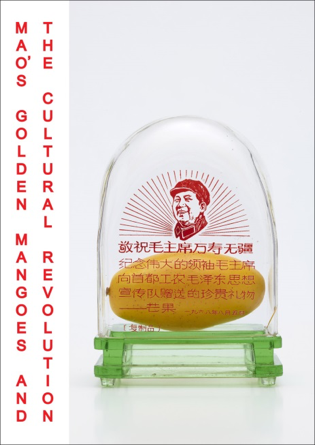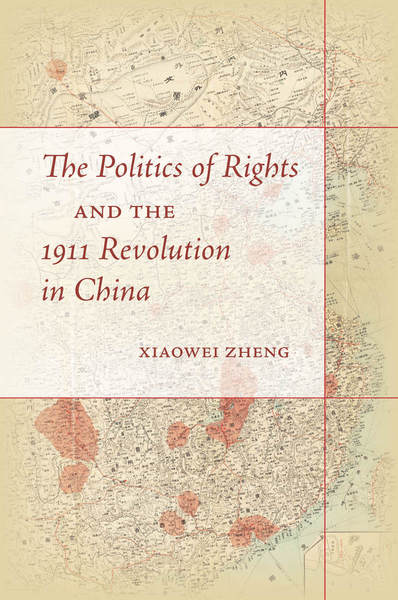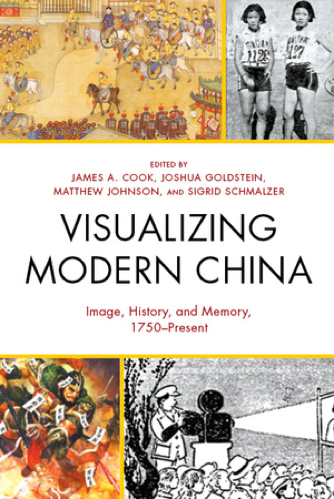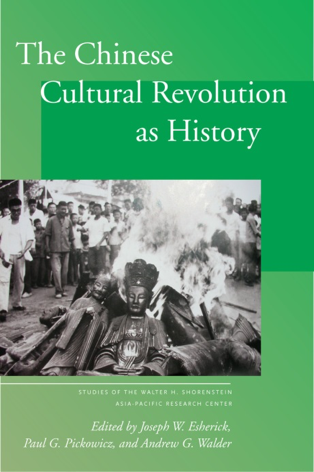Xiaowei Zheng
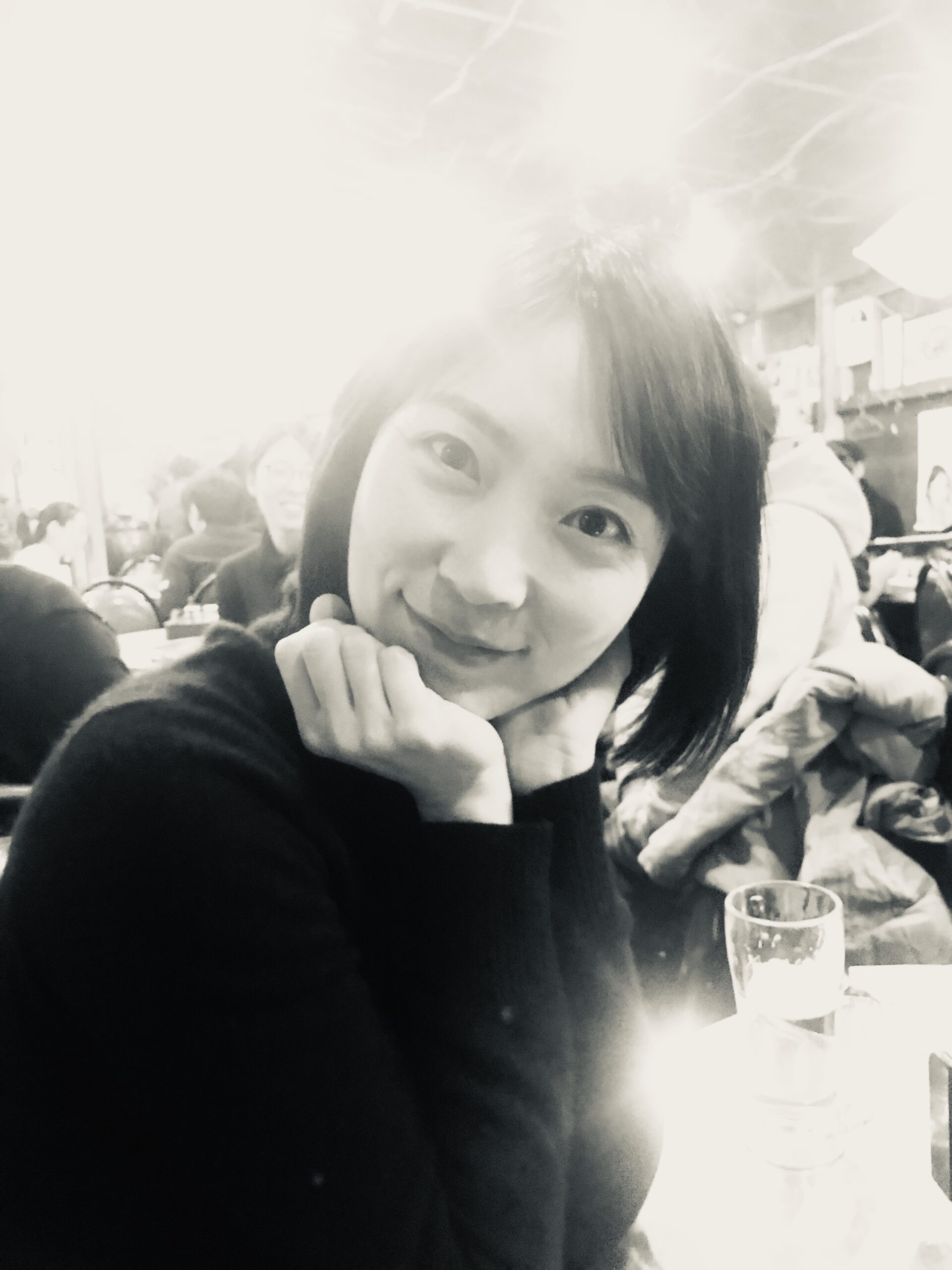 Xiaowei Zheng
Xiaowei ZhengPh.D., UC San Diego
Associate Professor
Specialization: Modern Chinese History and Culture
Office: HSSB 4231
Office Hours: Friday 11am-1pm
Office Hours Time Period: Spring 2024
Email:zheng@history.ucsb.edu
My research interests include local history of the Qing dynasty and early republican political culture, with a focus on the emergence of popular nationalism and the potential of republicanism. I am also attracted to revolutions, and take a special interest in the historiography of comparative revolutions, constitutionalism, and democracy. My first book The Politics of Rights and the 1911 Revolution in China is a nuanced chronicle of the 1911 Revolution as it occurred in local and regional areas. I explore the ideas that motivated the revolution, the popularization of those ideas, and their animating impact on the Chinese people at large. The focus of the book is not on the success or failure of the revolution, but rather on the transformative effect that revolution has on people and what they learn from it. I am currently working on my second book project. Tentatively titled The Unfinished Mission: Constitutionalism in China, it aims at demystifying and deciphering modern Chinese political discourse on popular rights, sovereignty, and constitutionalism throughout the twentieth century.
Publications
- The Politics of Rights and the 1911 Revolution in China. Stanford: Stanford University Press, 2018. Click here.
Selected Articles
- “关于中国专制论的辩论” In Songshi yanjiu zhu cengmian: Sikao yu shijian. (Beijing: Beijing daxue chubanshe, 2020): 165-214. Click here.
- “Constitutionalist Pu Dianjun and His New Culture Movement.” Journal of Modern Chinese History Vol. 13 (December 2019): 226-248. Click here.
- “The Literary Turn: An Introduction of the Special Issue on Ways of Writing the Taiping Civil War.” Frontiers of History in China Vol. 13, No. 2 (August 2018) : 167-172.
- “China’s Political Paradox” SUP’s Blog Post Click here.
- “建构一个立宪国家:宣统元年四川咨议局中的讨论” In Zhongguo shixuehui ed., Jinian Xinhai geming yibai zhounian guoji xueshu yantaohui lunwenji (Beijing: Shehui kexue wenxian chubanshe, 2016), 361-373. Click here.
- “Life and Memory of Sent-down Youth in Yunnan.” In James Cook, Joshua Goldstein, Matthew Johnson, and Sigrid Schmalzer, eds., Visualizing Modern China: Image, History, and Memory, 1750-Present (Lanham, Md.: Lexington Books, 2014), 96-119. Click here.
- “Configuring a Constitutional State: Officials and Assemblymen at the 1909 Sichuan Provincial Assembly Meeting.” Twentieth-Century China Vol. 38, No. 3 (October 2013): 230-253. Click here.
- “成都における保路運動:国家主権(国権)と民衆の権利(民権)” In Ogata Yasushi ed., The 1911 Revolution in Global History (Tokyo: Kyuko Shoin, 2013), 196-222. Click here.
- “Die Qinghua-Universität und chinesische Politik zu Zeiten der Kulturrevolution.” In Alfreda Murck ed., Die Goldenen Mangos des Vorsitzenden Mao und die chinesische Kulturrevolution (Zurich: Scheidegger and Spiess, 2013), 16-35. Click here.
- “Qinghua University and Chinese Politics during the Cultural Revolution.” In Alfreda Murck ed., Mao’s Golden Mangoes and the Chinese Cultural Revolution (Zurich: Scheidegger and Spiess, 2013), 16-35. Click here.
- “Loyalty, Anxiety and Opportunism: Local Elite Activism during the Taiping Rebellion in Zhejiang, 1851-1864.” Late Imperial China Vol. 30, No. 2 (December 2009): 39-83. Click here.
- “Passion, Reflection and Survival: Political Choices of Red Guards at Qinghua University, June 1966-July 1968.” In Joseph Esherick, Paul Pickowicz, and Andrew Walder, eds., China’s Cultural Revolution As History (Stanford: Stanford University Press, 2006), 29-63. Click here.
Book Reviews
- Review for Cosmopolitanism in China: 1600-1950, edited by Minghui Hu and Johan Elverskog. Frontiers of Literary Studies in China 13.1 (January 2019).
- Review for Joel Andreas, Rise of the Red Engineers: The Cultural Revolution and the Origins of China’s New Class. Journal of Asian Studies 73.1 (February 2014).
- Review for Dong Guoqiang, “The First Uprising of the Cultural Revolution at Nanjing University: Dynamics, Nature, and Interpretation.” H-Diplo Article Reviews 329 (October 2011).
- Review for Complicated Currents: Media Flows, Soft Power, and East Asia, edited by Daniel Black, Stephen Epstein and Alison Tokita. Journal of Asian Studies 70.2 (June 2011).
- Review for John E. Wills Jr., The World from 1450 to 1700. Journal of Asian Studies 70.1 (February 2011).
Courses Taught
- East Asian Traditions: Modern (EACS 4B)
- History of China (EACS/HIST 80)
- The Qing Empire (CHIN/HIST 185A)
- Republican and People’s Republic of China (CHIN/HIST 185B)
- Chinese Thought: Modern (CHIN/HIST 185T)
- Proseminar in Modern Chinese History (CHIN/HIST 185P)
- Reading Seminar in Modern Chinese History (CHIN/HIST 185CQ)
- Research Seminar in Modern Chinese History (CHIN/HIST 185R)
- China’s Cultural Revolution (CHIN 185CR/285CR)
- Great Books in East Asian History (HIST 200AS/EACS 200AS)
- Comparative Revolutions and Communism (HIST 201C)
- Modern and Late Imperial China Historiography (HIST 201CC)
- Research Workshop (HIST 204)
- Introduction to the Research University (INT W20)
- International Student Experience at the Research University (INT W22)

